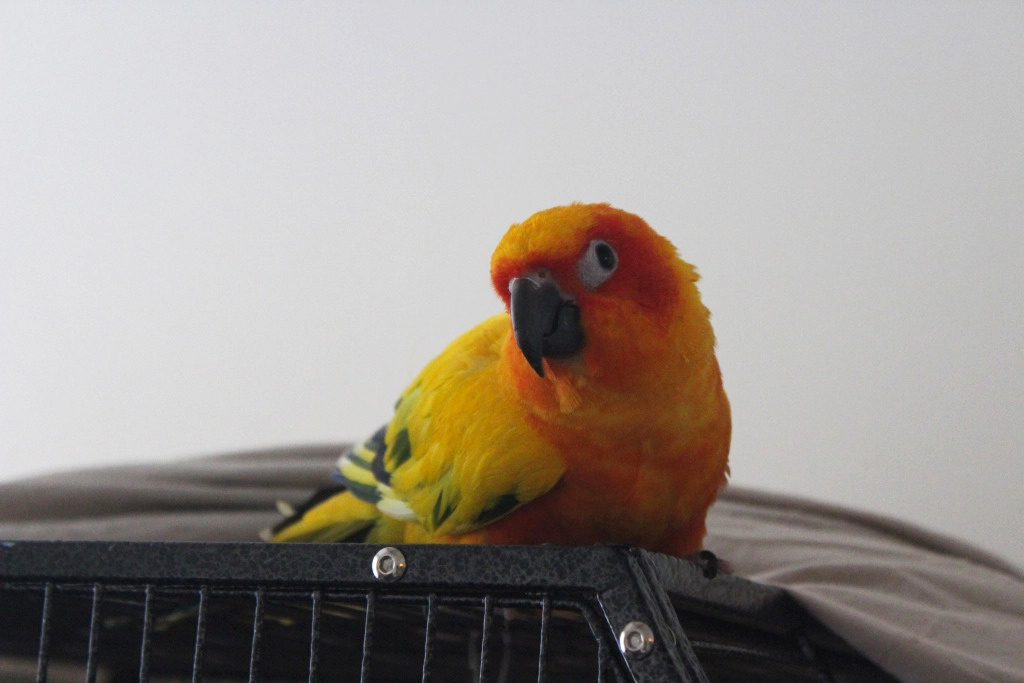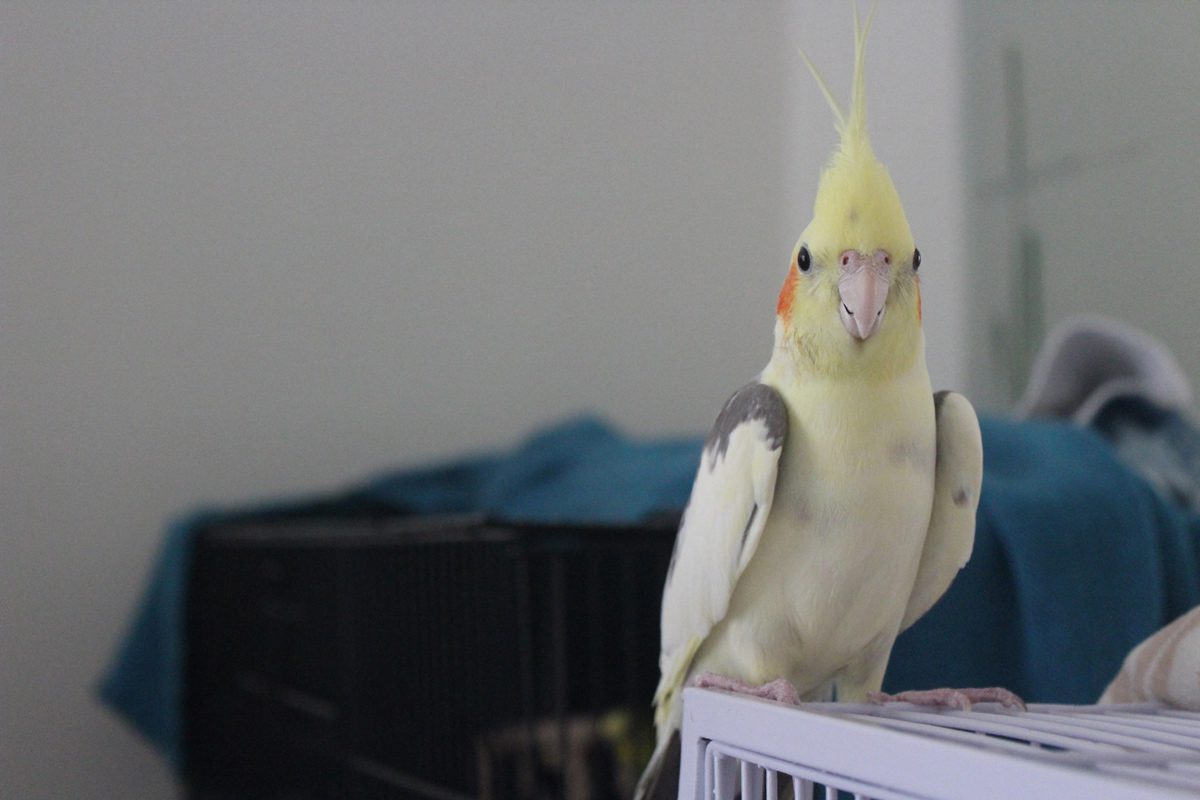Andersonville Is Home To Chicago’s Only Licensed Exotic Animal Rescue written by guest contributor Kayleigh Padar of Block Club Chicago.
Are you a lover of all creatures and animals? You won’t want to miss this feel good story. Our team member Jessica Katz (Selfhelp’s Resident Services and Community Outreach Manager) is the Founder & Executive Director of Chicagoland Exotic Animal Rescue (CLEAR). Read the story below from Block Club Chicago to learn more about this unique rescue and their meaningful mission…
ANDERSONVILLE — Nearly 100 reptiles, birds and fish have made their way through Jessica Katz’s spare room in the past two years as she helps them find their forever homes.
Katz founded Chicagoland Exotic Animal Rescue in August 2021 when she realized there was a need for more organizations dedicated to rehabilitating and rehoming exotic pets, which aren’t accepted by many shelters, she said.
“To my knowledge, no other rescue in the city of Chicago does what we do which is rescue, rehabilitate and rehome exotic birds, reptiles and fish, while also educating people about their needs,” said Katz, 36.
About a dozen volunteers help Katz care for about 12 critters at a time in her Andersonville apartment and other foster homes. The shelter is Chicago’s only exotic rescue to be licensed by the state. The shelter’s board is entirely made up of women and people who identify as LGBTQ+, which happened organically, Katz said.
 “The No. 1 thing I hear from people about why there aren’t more shelters for exotic pets — like birds and reptiles — is surprise,” Katz said. “It doesn’t occur to them that there are oodles of stray parakeets all over the city.”
“The No. 1 thing I hear from people about why there aren’t more shelters for exotic pets — like birds and reptiles — is surprise,” Katz said. “It doesn’t occur to them that there are oodles of stray parakeets all over the city.”
Katz gets about six inquiries per week about animals who need homes, and she has to prioritize finding space for those that have absolutely nowhere else to go, she said. The shelter mainly rescues stray pets, such as parakeets, which struggle to live in the wild because they’re not native to Chicago.
Although the shelter doesn’t have the capacity to take in every pet in need of help, Katz coordinates with other organizations throughout the city and surrounding areas, including Chicago Bird Collision Monitors and the Chicago Herpetological Society.
Annette Prince, the director of Chicago Bird Collision Monitors, said there’s a large population of stray birds throughout the city, but there aren’t many groups dedicated to rehoming them.
“It’s really a crisis. There are just as many stray birds in need of homes as there are cats and dogs, if not more,” Prince said. “It’s a very important issue we need more help dealing with.
“There are so many shelters across the country that are just loaded with birds, and we should be finding them good homes before breeding or catching more birds to sell for cheap at pet stores, who could eventually end up in shelters, too.”
Typically, Katz and her team learn about loose pets in the Chicagoland area through their network of supporters. Katz said neighbors are always eager to sound the alarm when an animal needs help, whether they’ve spotted confused parakeets wandering Belmont Harbor or narrowly avoided stepping on a leopard gecko waiting at their back door in Wicker Park.
Once notified, shelter volunteers travel to retrieve the pet, bring it to a vet for evaluation and care for it until they’re able to find its previous owner or someone interested in adopting it.
“In two years of doing this work, we’ve only had one reunification with a prior owner,” Katz said. “It’s hard to say whether people are losing them by accident, which is probably the case the majority of the time, or if they’re letting them go because they’re overly optimistic about their chances in the wild. Sometimes, it’s relinquishment. I’ve had a landlord bring me a deceased tenant’s birds because there was nowhere else to take them.”
The cost to adopt varies based on the pet, but all animals come with the supplies needed to care for them, including an enclosure, food, treats and enrichment toys. The money from adoptions is mainly used to pay for veterinary care for the animals at the shelter.
“I want to set my peeps up to succeed — I want these families, adopters and fosters to focus on the animal without having to worry about buying all the stuff they need,” Katz said.
Katz also brings her animal ambassadors to schools and other community spaces to teach people about exotic animals’ needs and personalities. Katz’s bird Bingo, a sun-conure, is a huge hit at retirement communities where he frequently oversees bingo games, she said.

This kind of education is important since many birds are abandoned because it’s easy to buy them in pet stores without fully understanding the level of care they need to thrive, Prince said.
Birds are “active, intelligent creatures” with specialized diets who can often outlive their owners, Prince said. They require a lot of attention, plenty of enrichment activities and their vet bills are more costly than other animals, Prince said.
“People need to understand birds have very high emotional and behavioral needs,” Prince said. “They shouldn’t just be kept in a cage all day. I mean, we’re talking about an animal that could normally roam free across the sky.”
Katz enjoys working with families to ensure they fully understand the needs of their new pets, she said. Evie, a 10-year-old volunteer, has learned all about caring for birds while routinely looking after the ones awaiting adoption. She said the best part about working with stray pets is seeing them go from “being so sad to being so happy” as they regain their strength and learn to trust their caretakers.
Evie recently adopted Hollis, a moody cockatiel who she created a special bond with while fostering him through the shelter. “At first he wasn’t friendly at all, but now he’s super friendly, not to other people really, but for me,” Evie said. “He likes going on my shoulder, and that’s a really huge step from what he was like at first.”
There are ways to get involved with the Chicagoland Exotic Animal Rescue: Fans can volunteer, foster a pet, donate money or buy items for the animals from the organization’s Amazon Wish List.
“It’s a community that we’re building, and I feel like Andersonville is the right neighborhood for it because we’re all animal lovers here,” Katz said. “When we have fundraisers and I ask people to raise their hands if they have pets, everyone always raises their hands. Not only are our volunteers, adopters, fosters and partner organizations looking out for us, our neighbors are, too.”


